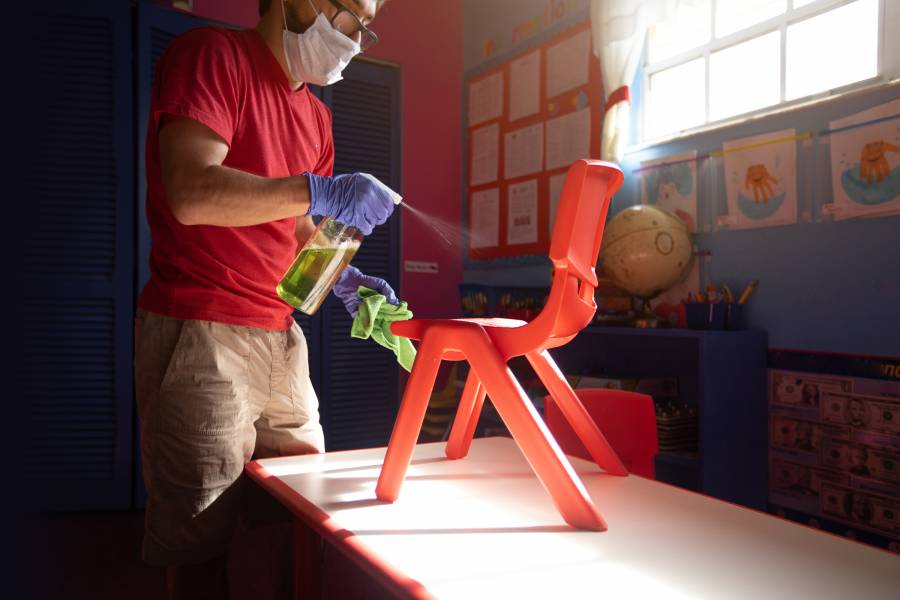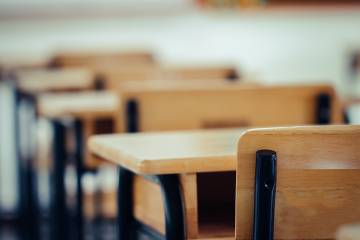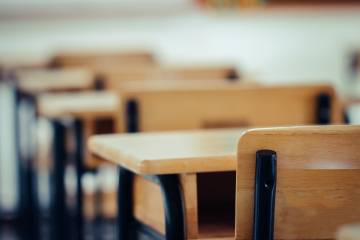Johns Hopkins School of Education Dean Christopher Morphew and Bloomberg School of Public Health Vice Dean Josh Sharfstein say there is an urgent need to reopen America's K-12 schools this fall, citing an expected academic backslide known as the "COVID slide" and burgeoning public health issues faced by vulnerable children, including hunger and decreased access to health care.
In an article published Monday in the Journal of the American Medical Association, Morphew and Sharfstein write that the closure of K-12 schools nationwide likely has helped the country avert a medical catastrophe sparked by the COVID-19 pandemic. "This decisive step, however, is casting a long shadow," they write. Among the fallout: More than 20 million children in the U.S. rely on school breakfast or lunch for food, and surveys now indicate one in five mothers report that their children younger than 12 years old are going hungry. What's more, millions of children have lost access to school-based health services.
Morphew and Sharfstein collaborated on a six-point plan to safely and thoughtfully reopen America's K-12 schools, while prioritizing access to on-site education for young children, children who experience barriers to remote learning, and children who receive special education or nutritional support. The experts will discuss their plan shortly after noon today during a live Q&A with JAMA Editor-in-Chief Howard Bauchner, a Boston-based professor of pediatrics and community health sciences. They are expected to discuss opening primary, middle, and high schools in the fall.
An urgent first step toward creating successful school reopening conditions, as well as reducing chances that schools need to close again, Sharfstein and Morphew write, is driving down the spread of COVID-19 this summer while building a strong public health response for the fall—with rigorous programs of testing, contract tracing, isolation, and quarantine. "In the event of significant community spread in the fall and winter months," they write, "parents and teachers are likely to again demand school closure, and if they do, elected leaders are likely to agree."
Image caption: Watch the JAMA Q+A on YouTube
Other elements key to successful school reopenings, according to Sharfstein and Morphew, include:
- Establishing appropriate social distancing protocols at each school
- Prioritizing on-site education for at-risk children
- Preparing a strong school-based public health and environmental response that includes on-site screening
- Respecting and assisting the valid concerns of individual families and teachers
- Linking curricula, teaching strategies, and remote learning technologies
Morphew and Sharfstein acknowledge that any successful school reopening, including their recommendation, will require substantial resources and personnel. They call on Congress to quickly make sufficient funds available to states and localities to support K-12 education.
"The COVID-19 pandemic is more than a short-term threat to the nation's health," they write. "Through its effects on children, the legacy of COVID-19 will last for years."
Posted in Health, Voices+Opinion
Tagged education, joshua sharfstein, christopher morphew, coronavirus, covid-19










